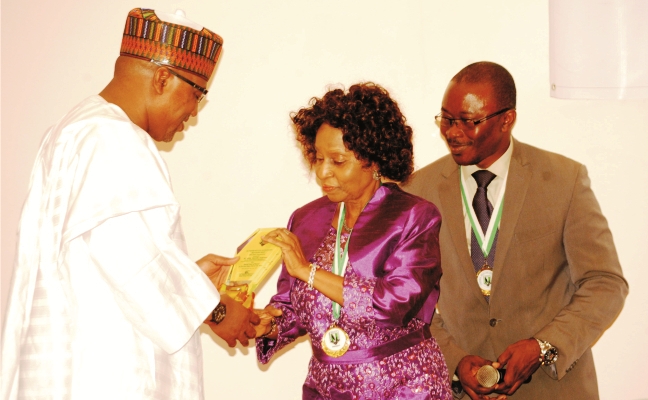Business
UNCTAD Tasks African Countries On Debt Management

The United Nations Conference on Trade and Development (UNCTAD), has urged African countries to continue strengthening their macroeconomic fundamentals for the avoidance of more debt traps in the future.
UNCTAD gave the advice in its globally presented 2016 Economic Development in Africa Report, entitled “Debt Dynamics and Development Finance in Africa’’.
The report which was also presented in Lagos by the United Nations Information Centre (UNIC), also evolved measures aimed at pursuing structural transformation to avoid debt trap.
“As a result of the high costs in financing Sustainable Development Goals, the importance of domestic debt in development finance has gained prominence.
“However, this also highlights the importance of maintaining debt sustainability and preventing debt distress.
“Debt channelled to investments for Sustainable Development Goals should be given more flexibility,’’ it said.
The report said that it was imperative for African countries to raise adequate levels of financing for development from domestic and external sources, to meet development goals.
It also recommended the leveraging of domestic and external debt, without compromising debt sustainability.
The report also enjoined African countries to lower current account deficit, as well as lessen exposure to commodity price volatility through export diversification.
The 156-page report with detailed case studies of Nigeria, Ghana, Kenya, Tanzania and Zambia, also advised African countries to combat corruption and misappropriation of funds.
It also recommended the need for them to design sound investment programmes with carefully selected projects, for speedy implementation.
The report said that it was also needful for the countries to promote greater efficiency in government’s spending and revenue collection.
The Director of UNIC, Mr Ronald Kayanja, had before the public presentation of the report, said that the 2030 Development Agenda would guide global collective action for sustainable development for 15 years.
According to him, Africa will need between $600billion to $1.2trillion every year to achieve the goals.
“There are worrying signs that people in Africa are increasingly unhappy with the state of their countries’ economies.
“High inequality, stagnant incomes, not enough jobs for the youths, and too little cause for optimism, stoke legitimate fears for the future for many in Africa.
“I hope with this report, policy makers in Africa will focus more on how to generate the needed resources to ensure that we meet the global goals by 2030, ‘’ he added.
Business
Ban On Satchet Alcoholic Drinks: FG To Loss N2trillion, says FOBTOB

Business
Estate Developer Harps On Real Estate investment

Business
FG Reaffirms Nigeria-First Policy To Boost Local Industry, Expand Non-oil Exports

-

 Sports5 days ago
Sports5 days agoBarca Impress On Return To Camp Nou
-

 Sports4 days ago
Sports4 days agoBundesliga: Oliseh Stars As Bayern Rebound To Thrash Freiburg
-

 Sports5 days ago
Sports5 days agoSunderland Fall At Fulham
-

 Sports4 days ago
Sports4 days agoForest Embarrass Liverpool At Anfield
-

 Sports5 days ago
Sports5 days agoOgoni Nation Cup: Victory Against Amee Base Excites Coach
-

 Niger Delta4 days ago
Niger Delta4 days agoTraditional Ruler Seeks End To Benin Artifacts Unauthorized Promotion
-

 Maritime5 days ago
Maritime5 days agoNSC Decries Police Interferences With Cargoes At Seaports
-

 Politics5 days ago
Politics5 days agoCleric Tasks APC On Internal Stability, Warns Otti

